news
Update : ADVAN rejects APCON AISOP
The Advertisers Association of Nigeria ADVAN rejects the implementation of the new Advertising Industry Standard of Practice as it makes an unconstitutional attempt to infringe on the rights of private entities to determine their contractual terms.
ADVAN is very supportive of the plan to create a Standard of Practice for the advertising industry, a key objective of ADVAN is to facilitate and support progress in the advertising and marketing communications industry. ADVAN is excited to be a part of any initiative towards the development of industry best practice which will facilitate business and economic growth.
The Supreme Court has in many decisions, pronounced that the rationale for freedom of contract is founded on public policy: i.e., parties of full age and competent understanding are deemed to have the utmost liberty of contracting, and that their contracts when entered freely and voluntarily must be held sacred and be enforced by courts of law,
Furthermore, as principal benefactors of Advertising services our role and input with regards to this AISOP has not been fully onboarded, the current AISOP is void of critical elements that protect the rights and interest of the ADVAN community.
It is the submission of ADVAN and all its members, that the current AISOP does not serve collective interest, but rather permits unfair authority of certain parties over others and creates an unfriendly business framework. It portrays a clear indication of discriminatory standards where the AISOP document in section 5 sub section b (Discounts and Commissions) states that “No party will unilaterally dictate or impose rates on another party except as may be mutually agreed by upon by the parties” however in the summary submitted to the press there is a clause that states “Media rates may be increased at any time provided that at least 30 days’ notice is given prior to implementation”. Latter of which was not included on original documents, further portraying an inconsistency in expectation.
ADVAN requests that in all instances, the condition of a mutually agreed terms by both parties be upheld and not only as it applies to expectations from Advertisers.
Government has a specific and critical role in supporting industry development by providing fair and enabling legislation and guidelines for ethical business practices, this involvement however, should not overrule the constitutional rights of business entities to conduct legitimate business activities.
The perception of a discriminatory regulatory system will be counterproductive to the collective objective of creating a conducive business environment.
Consequently, in the interest of creating an inclusive free, fair, and transparent industry standard of practice, ADVAN has sent in a clear representation of expectation. ADVAN is on standby for the acknowledgment of this position and further engagement on a standard of practice framework that is in the mutual interest of all.
news
How Tinubu’s Reforms Are Redefining Nigeria’s Economic Future
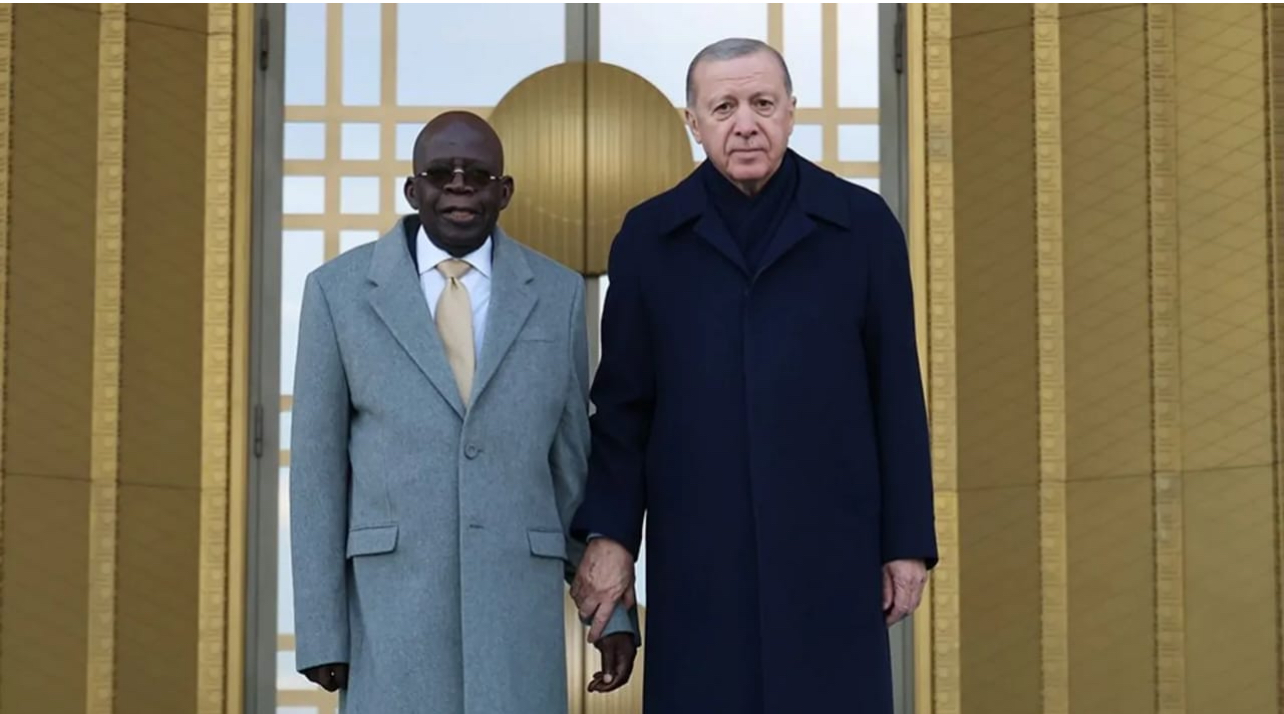
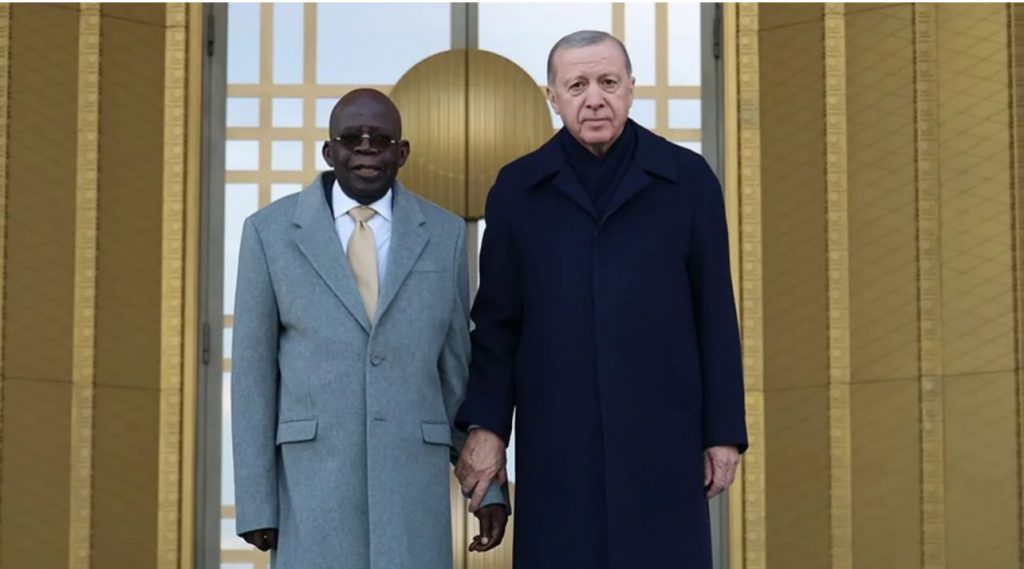
By: Dr Abolade Agbola
In a few months, the economic reforms of the government of President Tinubu will be three years old, while the government will be on the last lap of its four-year first-term mandate. The President’s statement at his inauguration on the 29th May 2023, that “the fuel subsidy was gone,” ushered in a series of reforms that reshaped the economy. Two weeks after the President’s inauguration, the Central Bank unified the multiple exchange rates on 14th June 2023 and transitioned from a rigid, multi-layered exchange rate system to a unified, “willing buyer-willing seller” managed float regime. The Presidential Committee on Fiscal Policy and Tax Reforms was constituted in July 2023 to draft a new tax and fiscal law. In March 2024, the Central Bank announced a new threshold for bank capital, requiring banks to increase their minimum share capital by the March 31, 2026, deadline to strengthen the financial system against impending economic shocks following the reforms and support the nation’s economic growth target of $ 1 trillion in GDP by 2030. Nigeria has had several foreign exchange market reforms, but the most profound ones are the transition from the Import licensing scheme to the Second-Tier Foreign Exchange market in 1986, following the deregulation and liberalization of the economy, and the massive devaluation of the currency in 1994. The uniqueness of the 2023 reforms lay in their timing, at the dawn of the administration, and in complementary policies such as the floating of the Naira following the abolition of multiple exchange rates, thus allowing the market to achieve equilibrium simultaneously in the pricing of petrol and the Naira.
The fuel subsidy removal led to a price increase for petrol from N200 per litre in May 2023 to between N1,200 and N1,300 per litre in early 2025. The floating of the Naira and unification of multiple exchange rates led to the currency’s massive devaluation from N460: $1 on 29th May 2023 to N1,700: $1 by November 2024. The post-subsidy removal and Naira floatation in the economy led to high inflation and a decline in household consumption. According to the World Bank, 56% of Nigerians (over 113 million people) living below the poverty line in 2023 are projected to reach 61% (139 million) by 2025. Today, the Naira is stabilizing at about N1,400: $1, while petrol has fallen to about N880 per litre, and inflation has receded to 15.15%, with prospects of getting to a single digit before the end of 2026. A single-digit inflation rate will take a substantial number of people out of poverty as the mystery index declines alongside the receding inflationary spiral, as policies that foster job creation, reduce price volatility, and stimulate economic growth are implemented.
Nigeria was on the brink of economic collapse in 2023. Most of the sub-nationals were unable to pay salaries. There was no budget for fuel subsidy from 1st June 2023. The external reserves of US$34.39 billion in May 2023 were barely adequate to finance 6.5 months of imports of goods and services and 8.8 months of imports of goods only. JP Morgan, a global financial institution, later claimed that the previous administration actually left Nigeria with a net reserve of $3.7 billion, rather than $34.39 billion. In May 2023, the Central Bank of Nigeria (CBN) had a foreign currency liability to foreign airlines of approximately $2.27 billion due to the airlines’ inability to repatriate their ticket sales revenue. Nigeria’s foreign reserves stood at $45.21 billion as of December 2025. In fact, the country experienced significant trade surpluses, with reports indicating around N6.69 trillion (Exports: N22.81tn, Imports: N16.12tn) as at the third quarter of 2025, driven by rising crude oil and non-oil exports, such as refined petroleum, despite some fluctuations and policy impacts, highlighting economic restructuring towards diversification.
Nigeria’s economic decline, which compelled the latest reforms, began in 2014, when crude prices began plummeting from their peak of $114 per barrel. Nigeria had two recessions in 4-year intervals, the 2016 recession, when the price of crude oil fell to $27 per barrel due to a U.S. shale oil-inspired glut. The other recession in 2020 was a result of the COVID-19 pandemic, when crude oil prices dropped to $17 per barrel amid worldwide lockdowns aimed at containing it. The economy was rebounding in 2022 when the Russia-Ukraine war disrupted the global commodity supply chain and triggered another round of economic crises. The government was reluctant to depreciate the Naira in response to economic realities, given its populist and leftist inclinations. The consequence was the near collapse of the economy by the time the 2023 elections were held. The government borrowed massively with the intent of spending its way out of the recession. Nigeria’s total public debt was N77 Trillion, or $108 billion, when President Tinubu was sworn in on the 29th May 2023. The debt profile had risen to N160 trillion ($111 billion) by the end of 2025, a moderate growth given the significant depreciation of the currency and the vast improvement in the country’s fortunes in the past two years.
Nigeria had intermittently grappled with rent, creating multiple exchange rates since 1986, when the corrupt-laden import license scheme gave way to currency auctions using the Dutch auction method. In 1986, amid the crude oil price meltdown, Nigerians rejected the IMF loan after a debate instigated by the military to carry the people along with the options available at the time for addressing the nation’s economic crisis. The objective of the IMF/World Bank-backed policy was to diversify the oil-dependent economy, reduce imports, privatize state firms, devalue the Naira, and foster private-sector growth to combat worsening economic conditions, such as inflation and debt overhang. In 2023, at its zenith, the rent reached N300 for every dollar sold by the central bank, creating artificial advantages in the market and enabling a few to extract wealth without effort. No wonder President Tinubu remarked while campaigning that if the multiple exchanges remain for one day after he is sworn in as President, it means he is benefiting from the fraud, and added, “God forbid.”
Fuel price regulation started with the Price Control Act of 1977. The fuel subsidy was introduced around 1986, when we designated fuel stations into two categories. The station that sells to commercial vehicles offers subsidized prices, while the one that sells to private vehicles charges market rates. The arrangement collapsed, and the subsidy regime crept in.
Just as in 2023, Nigeria undertook a massive devaluation of the Naira and the removal of petroleum subsidies in 1994 during the era of General Sanni Abacha. The Naira was devalued from N22 to N80 per dollar in 1994, following the near-collapse of the economy after the annulment of the 12th June 1993 elections and a protracted period of low crude oil prices, which reached $16 per barrel in 1994. Almost simultaneously, the government removed some fuel subsidies and established the Petroleum Trust Fund, headed by the late President Muhammadu Buhari as Chairman, to manage projects funded by part of the removed subsidies. According to CBN data, inflation rose from 57.03% in 1994 to 72.83% in 1995 due to the policy. The inflationary rate declined to 29.26% in 1996, and 8.52% in 1997, and 9.99% in 1998.
The reforms by President Tinubu in 2023, following the floatation of the Naira and the removal of the fuel subsidy, created a similar inflationary spiral. Inflation rate rose from 22.41% in May 2023 to 28.92% in December 2023, marking a 21-year high. The surge in inflation peaked at 34.80% by December 2024. The year-on-year inflation, however, declined to 15.15% by December 2025, indicating improving price stability as we approach the third year of the reforms. There is no doubt that inflation will recede to single digits before the end of 2026 as the trigger factors (petrol prices and exchange rates) are now determined by market forces.
The reforms of President Tinubu in 2023 were unique in several ways. The courage to embark on both fuel subsidy removal and floatation of the Naira simultaneously at the dawn of the regime amounted to front-loading the expected and inevitable policy pains for gains that will manifest as the administration winds down its first term in office. What is certain after discounting for possible, unpredictable global headwinds such as commodity price volatility, the pandemic, climate change, and supply chain disruptions, to name a few, is that the economy will continue to improve as we approach the election year. The trend will certainly play a key role in the 2027 elections. Unlike the 1994 subsidy removal and devaluation of the Naira, during which a portion of the fuel subsidy removal benefits was allocated to the Petroleum Trust Fund(PTF), the benefits of the 2023 policy actions were equitably and transparently shared among the three tiers of government, thereby strengthening the fiscal position of the federating units. The inequitable distribution of PTF projects among the federating units remains a recurring point of criticism of the initiative. Monthly allocations to the 36 states and 774 local councils increased from roughly ₦458.81 billion in May 2023 to over ₦991 billion by June 2025, representing a 116% increase in some periods. The improved FACC allocation to the states may be one of the reasons for the cordial relationship between most of the state governors and the federal government, as the states were able to execute many projects to fulfill their campaign promises.
Another unique foresight of the government in implementing the 2023 reforms is the recapitalization of banks to strengthen financial institutions, as the Naira weakens amid a spike in inflation. The massive devaluation of the Naira in 1994 led to a wave of bank failures some years later. According to Central Bank reports, by 1998, 20 distressed banks had had their licenses revoked, with dire consequences for the economy. The 2024 banking recapitalization, ending March 2026, which gave banks a 24-month window to shore up their capital, was a masterstroke to strengthen the financial system, build stronger, more resilient banks to withstand Naira depreciation shocks, and foster sustainable economic growth and development.
The brand-new set of tax and fiscal laws delivered by the Presidential Committee on Fiscal Policy and Tax Reforms became operational on the 1st of January 2026. The law aims to remove all barriers to business growth in Nigeria and further diversify the economy by enhancing its revenue profile, weaning the nation from reliance on crude oil export revenue. The laws are to enhance revenue collection efficiency, ensure transparent reporting, and promote the effective utilization of tax and other revenues to boost citizens’ tax morale, foster a healthy tax culture, and drive voluntary compliance.
The government, after protracted negotiations with labour unions, reviewed the national minimum wage in July 2024, from ₦30,000 to ₦70,000 per month, to mitigate the impact of inflation, one of the most debilitating unintended consequences of the reforms. The government, in a proactive move, promulgated the National Minimum Wage Amendment Act 2024 to shorten the minimum wage review period from 5 years to 3 years, meaning that the next formal review is due in 2027. There are several other projects and programmes aimed at repositioning the economy, such as the massive divestment of onshore oil assets in 2024 by International Oil Companies (IOCs) to indigenous Nigerian firms, which has increased crude oil production from 1.1mbarrel per day in 2023 to around 1.44million barrels per day (mbpd) in 2025. The speedy conclusion of the transfer deals and the rework of the assets is crucial to the actualization of the government’s target of daily production of 2.5m barrels per day in 2026 and the turnaround of the economy for another era of sustainable growth and development.
There is also the deployment of 2,000 high-quality tractors with trailers, ploughs, harrows, sprayers, and planters in 2025 as part of the government’s commitment to inject 2000 tractors annually to improve farming efficiency and reverse the poor mechanization of our farms. Nigeria, with a land area of 92m hectares, of which 34m hectares is arable, has less than 50,000 tractors, which is dismally low and significantly responsible for our food insecurity.
In conclusion, there is no doubt that the President and his team have done many things differently, such as the audacious simultaneous removal of the fuel subsidy and the unification of the multiple exchange rates, the floatation of the Naira, new fiscal and tax laws, the recapitalization of banks, and the minimum wage review. These are comprehensive monetary, fiscal, and structural reforms that are delivering changes, transitioning our country from a restricted, inefficient, or crisis-prone economy to a more open, market-oriented, and competitive one. The pains uploaded upfront at the inception of the regime are giving way to discernible gains and unprecedented reset of the economy for sustainable growth and development. Our nation is poised to enter another era of pervasive economic boom, having emerged from the bust cycle that began in 2014 stronger. A solid framework for replicating the economic boom of 2005 to 2014 has been laid by adopting market-determined exchange rates and fuel prices, and by ramping up crude oil production. The government must evolve pragmatic trade and investment policies to mitigate some of the unintended consequences of the reforms, such as dwindling household consumption, escalating inequalities, and the percentage of people living below the poverty line, while protecting local industries, attracting foreign investment, boosting job creation, and enhancing the standard of living of the people. Nigeria is no doubt set for another era of sustainable growth and development.
Dr Abolade Agbola, DBA, MSc Ag Econs, FCS, FCIB, Managing Director of Lam Agro Consult Limited and Lam Business Solutions, is a Stockbroker, Banker, and Agribusiness Business Consultant .He writes from Lagos
news
Alleged Coup Attempt Against Tinubu, Fraud Charges: Sylva Faces Possible Arraignment in Absentia
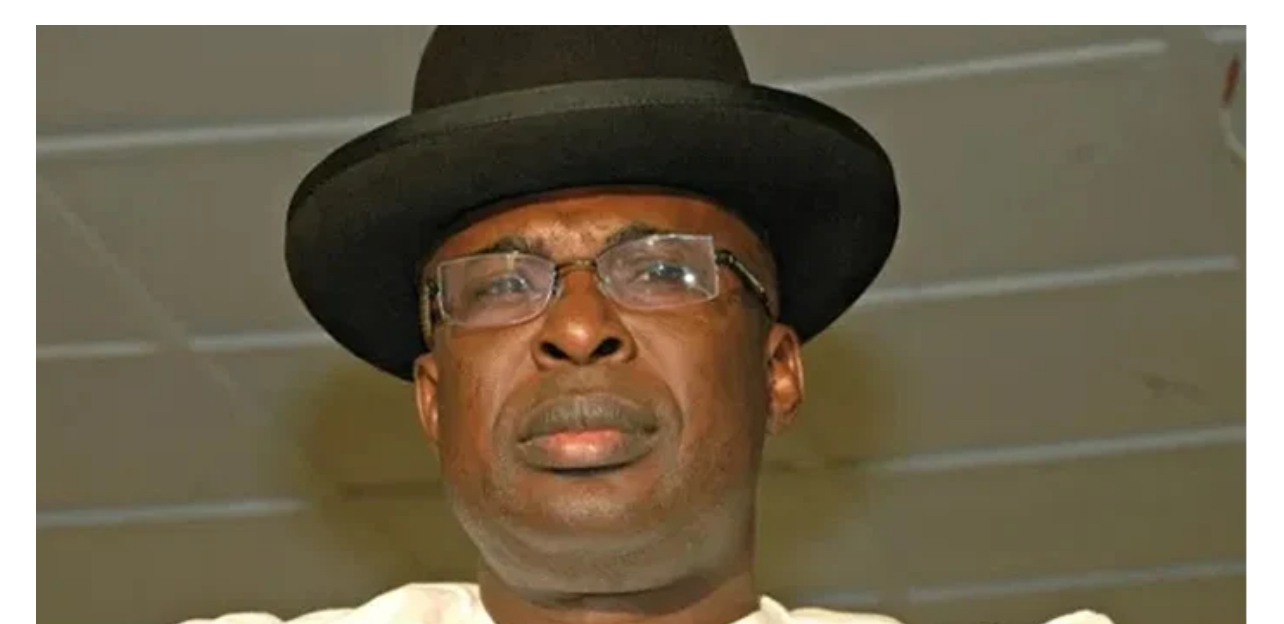
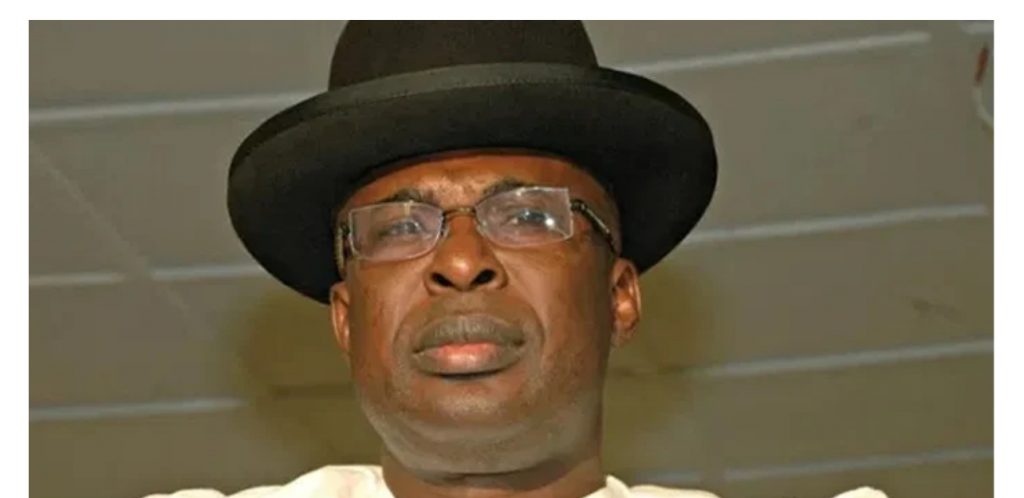
Former Bayelsa State Governor, Timipre Sylva, has yet to return to the country months after his Abuja residence was raided by operatives of the Defence Intelligence Agency.
It was reported that the raid was connected with investigations into the alleged coup attempt against President Bola Tinubu.
Our correspondence gathered that Sylva, who was also declared wanted by the Economic and Financial Crimes Commission over alleged $14,859,257 fraud, might be arraigned in absentia for financial crimes.
Top officers of the Department of State Services and the EFCC told one of our correspondents that the International Criminal Police Organisation and other Nigerian partners in the war against crime were currently trailing the former governor.
The Defence Headquarters had, in October 2025, dismissed reports of a coup attempt, despite the arrest and detention of 16 officers accused of sponsoring the plot.
The DHQ, in a statement by its Director of Defence Information, Brig Gen Tukur Gusau, on October 18, 2025, denied a Sahara Reporters story linking the detention of the officers to a failed coup and the cancellation of the October 1 Independence Day parade.
Gusau described the report as “intended to cause unnecessary tension and distrust among the populace.”
“The ongoing investigation involving the 16 officers is a routine internal process aimed at ensuring discipline and professionalism within the ranks. An investigative panel has been duly constituted, and its findings will be made public,” he said.
However, last Monday, the military backtracked, confirming that there was indeed a plot to topple Tinubu’s administration.
Presenting the outcome of investigations on the detained officers, the new Director of Defence Information, Maj Gen Samaila Uba, said the findings identified several officers with cases to answer over allegations of plotting to overthrow the government.
He said, “The findings identified a number of officers with allegations of plotting to overthrow the government, which is inconsistent with the ethics, values and professional standards required of members of the AFN.”
He noted that those indicted would be formally arraigned before relevant military judicial panels to face trial in line with the Armed Forces Act and other applicable service regulations.
Following the arrest of the 16 military officers, Sylva’s Abuja residence was raided on October 25, 2025, by operatives of the DIA.
Sylva was out of the country at the time his house was raided, but his younger brother, Paga, who serves as his Special Assistant on Domestic Affairs, along with his driver, was arrested during the operation.
Also, the former governor was declared wanted on November 10, 2025, over an alleged case of “conspiracy and dishonest conversion” of $14,859,257, part of funds injected by the Nigerian Content Development and Monitoring Board into Atlantic International Refinery and Petrochemical Limited for the construction of a refinery.
However, Sylva’s Special Assistant on Media and Public Affairs, Julius Bokoru, dismissed reports linking his principal to the coup plot, describing them as baseless and politically motivated.
He described the reports as the handiwork of “desperate and self-seeking politicians seeking to actualise their ambitions ahead of the 2027 elections.”
In a statement, Bokoru condemned the EFCC’s action, noting that the former minister was undergoing medical examination in the UK and would honour the commission’s invitation upon his return to Nigeria.
However, three months after being declared wanted, Sylva has yet to return to the country.
Our Findings revealed that the EFCC had alerted Interpol to facilitate the arrest of the former governor.
Although the Interpol spokesperson in Nigeria, Benjamin Hundeyin, who also doubles as the Force Public Relations Officer, neither answered calls nor responded to messages sent to his phone, top security officers, including DSS and police personnel, said Interpol was involved in efforts to apprehend Sylva.
“Interpol was contacted immediately after the former governor was declared wanted. Apart from the EFCC, the service is also after him. He can’t hide forever. He should submit himself for investigation if he is indeed innocent.
“Nnamdi Kanu was out of the country for a while, thinking he was off the radar. But where is he today? We will also get Sylva,” said a DSS operative knowledgeable about the matter.
Similarly, an EFCC officer, who spoke with our correspondence on condition of anonymity because he was not authorised to speak on the matter, disclosed that Sylva would be arraigned.
“He is still on our wanted list. We are looking for the right time to arraign him. However, investigations are ongoing. We are building our case against him and, when concluded, he will be charged,” the source said.
Asked if the commission would proceed to court before his apprehension, the source said Sylva could be arraigned in absentia.
“It is possible, and the law makes provision for it. However, we have not concluded that this is the option we will take. But legally, it is possible,” he added.
Speaking with one of our correspondents, another EFCC operative urged the former governor to turn himself in.
“When a suspect of such status is declared wanted, all our partners around the world are placed on notice. Wherever he is, he will be traced. The right thing to do is to turn yourself in,” he added.
However, when contacted last Thursday, Sylva’s spokesperson declined to comment on the matter.
“Given the confirmation by the Defence Headquarters, this is now a national security matter. I am not in a position to comment on speculations, travel or investigations. Relevant authorities are best placed to speak when appropriate,” Bokoru said in a text message.
news
Nigeria and Türkiye Agree to Accelerate Trade, Energy and Defence Partnerships, Says Tinubu
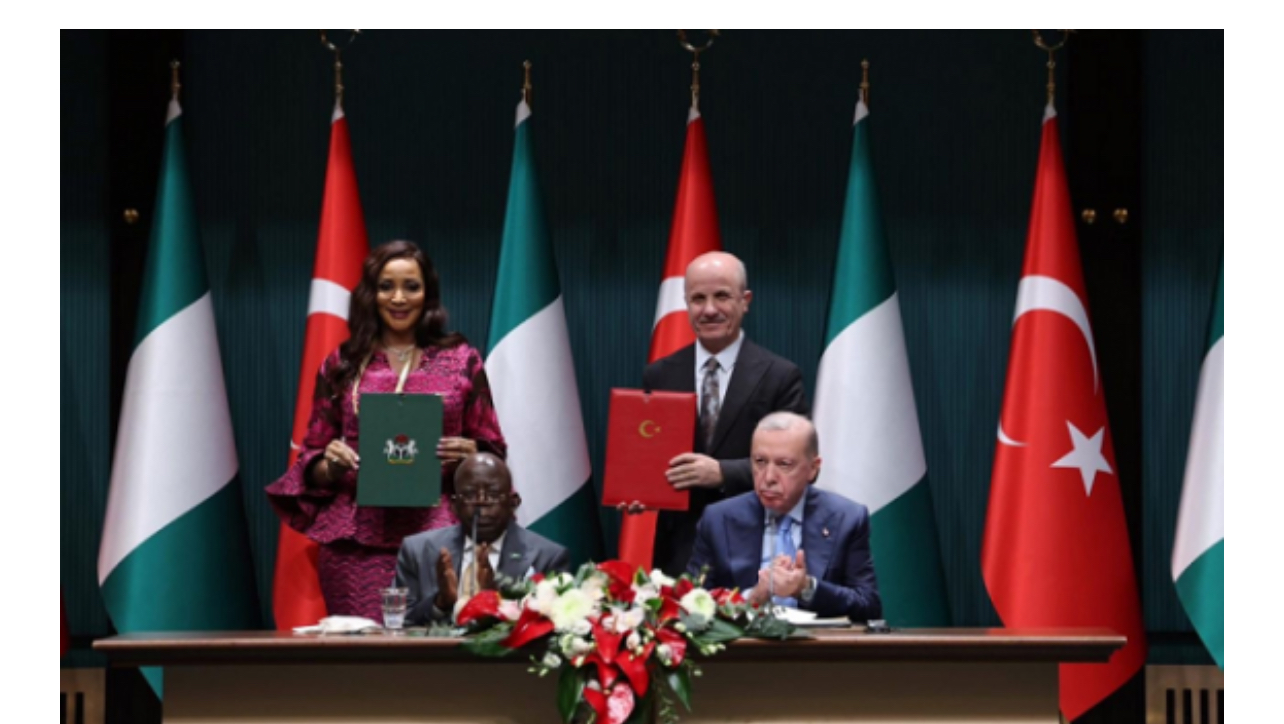
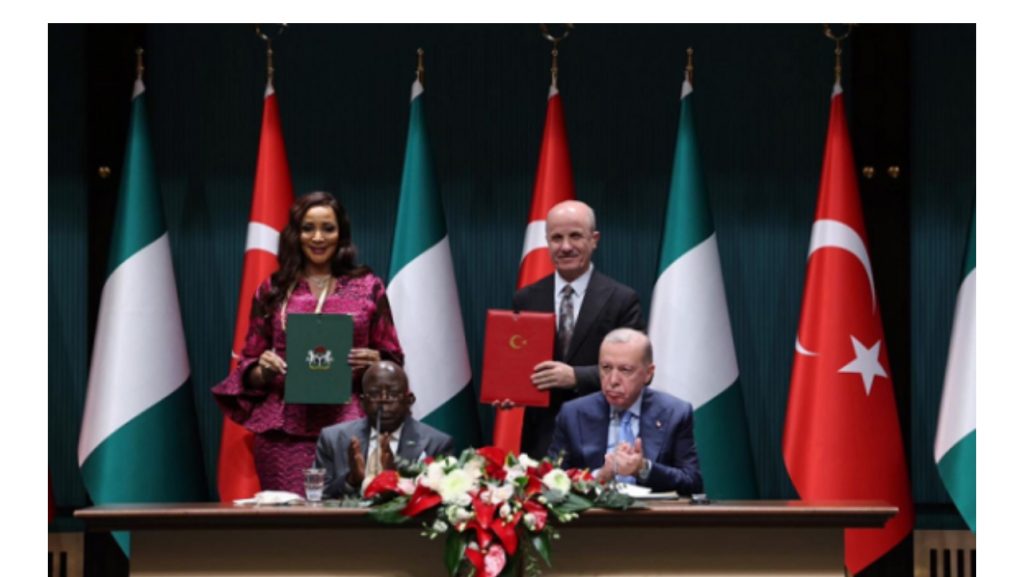 President Bola Tinubu says Nigeria and Türkiye have agreed to fast-track cooperation in trade, energy and defence to boost jobs, investment and shared prosperity.
President Bola Tinubu says Nigeria and Türkiye have agreed to fast-track cooperation in trade, energy and defence to boost jobs, investment and shared prosperity.
The President disclosed this on Tuesday via his official X handle during his ongoing State Visit to Ankara, Türkiye.
Tinubu said discussions with Turkish President Recep Tayyip Erdoğan focused on deepening bilateral relations and delivering tangible economic benefits for citizens of both countries.
“President Recep Tayyip Erdoğan and I reaffirmed our shared ambition, which speaks directly to jobs, investment and opportunity for our people,” the President said.
He said both leaders agreed on the need to expand trade volumes and remove structural barriers limiting business growth between Nigeria and Türkiye.
“We are creating a clear pathway to a five-billion-dollar trade volume between Nigeria and Türkiye,” Tinubu stated.
The President described the talks as practical and forward-looking, driven by mutual interests and shared regional and global responsibilities.
“Our conversations were practical and forward-looking: trade and investment, energy, education, defence cooperation, peace and security,” he said.
Tinubu announced the establishment of a Joint Economy and Trade Committee to drive implementation of agreements and attract fresh investments.
“The creation of a Joint Economy and Trade Committee will unlock new flows of capital,” the President noted.
He said the committee would also support industrial growth, technology transfer and stronger private sector participation.
Tinubu welcomed President Erdoğan’s acknowledgement of Nigeria’s ongoing reforms, especially in the energy and investment sectors.
“I welcome President Erdoğan’s recognition of Nigeria’s reform momentum, particularly in the energy sector,” he said.
The President said the renewed confidence reflected Nigeria’s commitment to transparency, stability and sustainable economic growth.
“We are determined to build an economy that works for everyone, including the most vulnerable,” Tinubu added.
On regional security, Tinubu reaffirmed Nigeria’s responsibility to promote peace and stability across Africa.
“Nigeria will continue to play its role in peace and stability in Africa,” the President said.
He said Türkiye’s expertise in counter-terrorism and defence cooperation would strengthen collective responses to emerging security threats.
“Türkiye’s experience and readiness to cooperate in training, intelligence sharing and counter-terrorism strengthen our resolve,” he stated.
Tinubu said nine bilateral agreements were exchanged at the end of the meetings between both leaders.
The agreements cover defence, education, media cooperation, diaspora policy, trade facilitation, social development and institutional collaboration.
“Nigeria remains open for serious partnership. Open to trade without barriers, ideas, skills and investment that create value and shared prosperity,” he said.
Tinubu reaffirmed Nigeria’s commitment to inclusive growth, peaceful coexistence and active global engagement.
“We are building an inclusive economy. We are strengthening peace. Nigeria will continue to engage the world with confidence and clarity,” Tinubu said.
-

 news5 years ago
news5 years agoUPDATE: #ENDSARS: CCTV footage of Lekki shootings intact – Says Sanwo – Olu
-

 lifestyle6 years ago
lifestyle6 years agoFormer Miss World: Mixed reactions trail Agbani Darego’s looks
-

 health5 years ago
health5 years agoChairman Agege LG, Ganiyu Egunjobi Receives Covid-19 Vaccines
-

 lifestyle4 years ago
lifestyle4 years agoObateru: Celebrating a Quintessential PR Man at 60
-

 health6 years ago
health6 years agoUPDATE : Nigeria Records 790 new cases of COVID-19
-

 health6 years ago
health6 years agoBREAKING: Nigeria confirms 663 new cases of COVID-19
-

 entertainment1 year ago
entertainment1 year agoAshny Set for Valentine Special and new Album ‘ Femme Fatale’
-

 news9 months ago
news9 months agoBREAKING: Tinubu swears in new NNPCL Board


